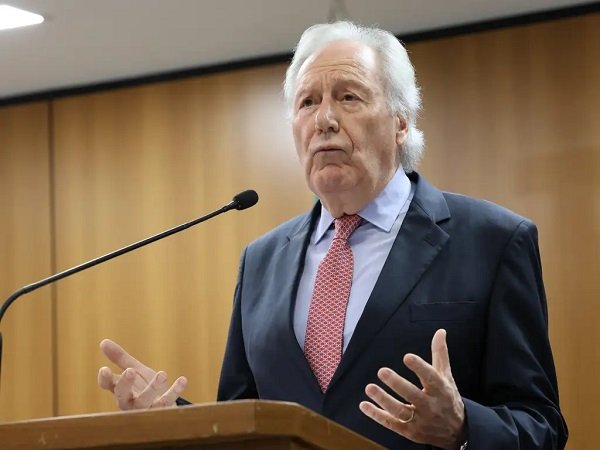The Minister of Justice, Ricardo Lewandowski, submitted a revised version of the Proposed Amendment to the Constitution (PEC) on Public Security to the Civil House on Wednesday (16/01). The government has identified this PEC as one of its priority agendas for 2025. The updated text aims to address concerns from governors, who criticized the initial version for allegedly infringing on state autonomy. The revised version clarifies the states’ independence in managing their police forces, defines the Federal Highway Police’s role as strictly overt, and proposes including civil society members in the Consesp (National Council of Public Security Secretaries). However, it maintains the clause that links adherence to the rules for receiving funds from the federal fund for public safety.
This Content Is Only For Subscribers
To unlock this content, subscribe to INTERLIRA Reports.
New Proposals
The original draft of the PEC was returned to the Ministry of Justice following five meetings between Lewandowski and the governors. A dedicated team drafted a new version emphasizing three key points:
- Preserving the states’ autonomy in managing their police agencies without federal interference.
- Limiting the Federal Highway Police to overt, non-judicial activities.
- Allowing civil society representatives to participate in the National Public Security Council.
Autonomy of the States
To ensure clarity, the revised PEC includes a paragraph explicitly stating that the new federal powers over public security “do not exclude the common and concurrent powers of the other federated entities” and “do not alter the subordination of military, civil, and criminal police forces, as well as military fire departments, to the Governors of the States and the Federal District.” Additionally, the Ministry of Justice removed the term “mandatory compliance” to emphasize that the current distribution of powers between states and municipalities remains unchanged.
Federal Highway Police
The new PEC also limits the activities of the Federal Highway Police (PRF) to overt policing on federal highways, railways, and waterways. The suggestion is that it be renamed the Federal Highway Police.
Reaction from Governors
The governor of Goiás, Ronaldo Caiado (União Brasil), a vocal critic of the initial PEC, dismissed the revised text as a “word trick,” arguing that while it maintains administrative autonomy for governors, it imposes “normative subordination.” In contrast, Espírito Santo governor Renato Casagrande (PSB) expressed support for the changes, stating that the revised PEC incorporated the governors’ proposals. Casagrande hosted a meeting between governors and the Ministry of Justice in Espírito Santo to negotiate the PEC’s content.
Penalties for Crimes
Minister Lewandowski rejected suggestions from Caiado and Rio de Janeiro governor Cláudio Castro (PL) to include provisions allowing states to legislate on criminal penalties. Lewandowski argued that such measures would undermine the federal structure and were therefore unfeasible.
Important for the Government
Public security remains a significant challenge for the PT administration, which has faced criticism for a perceived lack of policies to combat organized crime. The PEC aims to address these concerns with Lula’s backing. It seeks to expand the roles of the Federal and Federal Highway Police, constitutionalize the Unified Public Security System (SUSP), and secure the National Public Security and Penitentiary Funds. Despite the government’s commitment to advancing the PEC, it faces an uphill battle for approval in the Chamber of Deputies and Senate.
Change in Gun Control
The Federal Police will assume responsibility for monitoring collectors, sport shooters, and hunters (CACs) beginning 1 July 2025, according to an ordinance signed by the Ministries of Justice and Defense. Until then, the Army will retain control of CAC licenses. The ordinance formalizes a postponement by the Lula administration, which initially planned the transfer for 1 January 2025. From July onward, the Federal Police will oversee the Military Weapons Management System (SIGMA), which records CAC certificates and weapon data. A Federal Court of Auditors (TCU) report identified significant flaws in the Army’s oversight, including the issuance of CAC certificates to individuals convicted of crimes such as homicide and drug trafficking or with active arrest warranty violations of existing gun control laws.
Analysis:
The revised version of the Proposed Amendment to the Constitution (PEC) on Public Security reflects the federal government’s effort to strike a balance between centralized authority and respect for state autonomy in managing police forces. This revision attempts to address criticism from governors who argued that the initial draft overstepped constitutional boundaries and threatened local governance. By explicitly preserving state powers, the updated PEC aims to reassure state leaders while enabling the federal government to tackle pressing public security challenges effectively. However, the adhesion to the rules created by the federal government as a requirement to obtain funds remains as a mechanism that in practice will constrain the states’ independence to make decisions in this sector.
A significant adjustment in the revised PEC is the clarification of the Federal Highway Police’s (PRF) role, limiting its activities to overt policing on federal highways, railways, and waterways. This change addresses concerns of potential overreach, ensuring that the PRF remains focused on its operational priorities without encroaching on the responsibilities of state police forces. This distinction strengthens the delineation of federal and state jurisdictions, reinforcing a cooperative approach to public security.The delayed transfer of oversight for collectors, sport shooters, and hunters (CACs) from the Army to the Federal Police illustrates the government’s cautious approach to gun control reform. The Federal Court of Auditors’ (TCU) findings on systemic failures in the Army’s firearm oversight, including licenses issued to individuals with criminal records, underscore the urgency of enhanced regulation. This transfer, while postponed, is a critical step toward addressing these lapses and ensuring that firearm regulations are enforced more effectively to prevent weapons from falling into the wrong hands.
Sources: O Globo [1], [2]; A Folha de SP.




